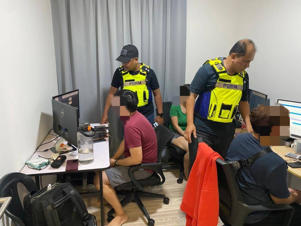
© Provided by Sinar Daily Picture for illustrative purposes – FILE PIX
SHAH ALAM – A legal expert has emphasised the need to amend and update existing laws instead of dismissing them as outdated.
Lawyer Mohamed Haniff Khatri Abdulla highlighted flaws in the Common Gaming Houses Act 289 and Betting Act 495, suggesting that provisions should be amended to address current gambling practices, including online gambling.
“Both these acts have been amended a few times from time to time as Act 289 was amended from 1956 to 2001, whereas Act 495 was amended a bit lesser as it has been amended four to five times to 1992.
“We do not need to specifically make another law for this because if we look at Act 289, it refers to all sorts of machines, so nowadays, people are gambling through the internet or computers, laptops, or mobile phones.
“You can include all these items in the separate section or specific section amended to interpretation to include all this mechanism,” he said.
He added that it is a matter of having knowledgeable individuals in the legal system who understand multimedia and gambling in the digital age.
“They should also know how it’s done and experts in gambling of current and modern types of betting and get the provision transferred properly and amend the law and at the same time amend the provision sentencing because if we go under the Act 289 and Act 285 the punishment is relatively minimum.
“Amend the law and update the law, don’t have to say it’s outdated as it gives the impression to the public that the law is outdated and the public will think until we have a new law, we cannot do anything.
“That’s not a good impression to give to the public as it is their responsibility what you need to say if we may need to amend certain provisions to bring new sections to cover the advancement of the technology and the internet and also the international internet betting system,” he said.
On enforcement, Mohamed Haniff suggested that provisions to curb internet betting should be incorporated within the Betting Acts rather than relying solely on the Malaysian Communication and Multimedia Commission (MCMC) law.
“But it doesn’t help to investigate the Betting Act so the provision to curb internet betting must always be at the Betting Acts and not only at MCMC law so by having that, the police could easily collaborate or communicate with their partners in multimedia,” he said.
Another lawyer, Fatihah Jamhar emphasised the need to expand the definition of betting to cover all instances, not just sports betting.
She proposed empowering the MCMC to geoblock gambling websites to prevent Malaysian users from accessing them. While acknowledging that illegal operators might find ways to circumvent these measures, having a framework to monitor online gambling is crucial.
“Empower MCMC to have rights to geoblock to ensure all gambling or betting websites are blocked from access by Malaysian users, which can use Virtual Private Network (VPN) to circumvent but at least there’s a framework to monitor this,” she said.
Meanwhile, lawyer Kokila Vaani Vadiveloo highlighted the loophole in Malaysia’s online gambling laws and recommended looking at Singapore’s Remote Gambling Act, which criminalises providing or participating in remote gambling services.
“Amending legislation like Act 289 and Act 495, which do not explicitly cover online gambling, could help to make it a criminal offense to use the internet to facilitate illegal gambling as it would make it more difficult for criminals to operate illegal gambling websites.
“It is important to note that addressing the challenges posed by illegal gambling and bookmaking in Malaysia is a complex task.
“However, by taking a comprehensive approach and addressing the root causes of the problem, the government can make a significant difference, especially in current times where everything can be done remotely, via the internet,” she said.